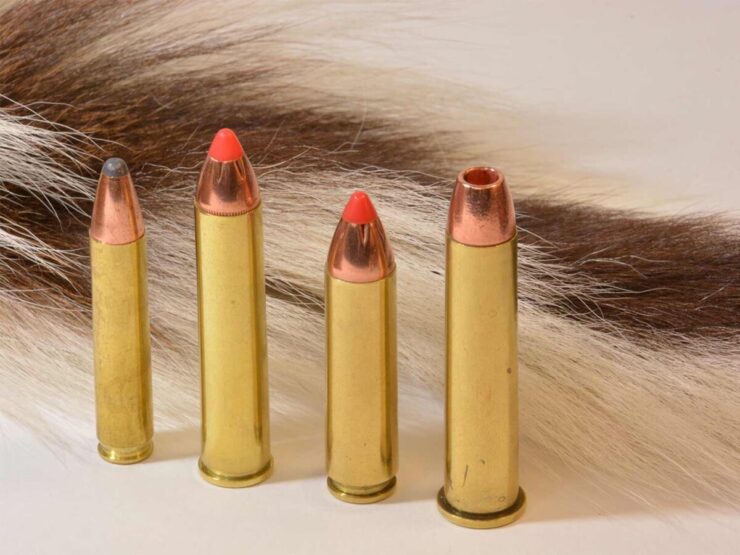Hunting ammunition is specifically designed ammunition used for hunting game animals. The type of hunting ammunition used depends on the type of game being hunted, as well as the desired outcome of the hunt. Hunting ammunition typically comes in a variety of calibers and may be designed for use in rifles, shotguns, or handguns. Shooting ammo frequently contains rounds or pellets that are intended to spread or splinter upon contact, resulting in a broader injury path and raising the possibility of a painless, compassionate execution.
Hunting ammo may also be designed with other features, such as a high ballistic coefficient, which helps to maintain velocity and accuracy over long distances, or a heavyweight, which can increase penetration and stopping power. It is important to note that the use of hunting ammo is highly regulated, and hunters must adhere to local laws and regulations regarding the type and caliber of ammunition, which can be found on this site, that can be used for hunting.
What are the things that we must consider?
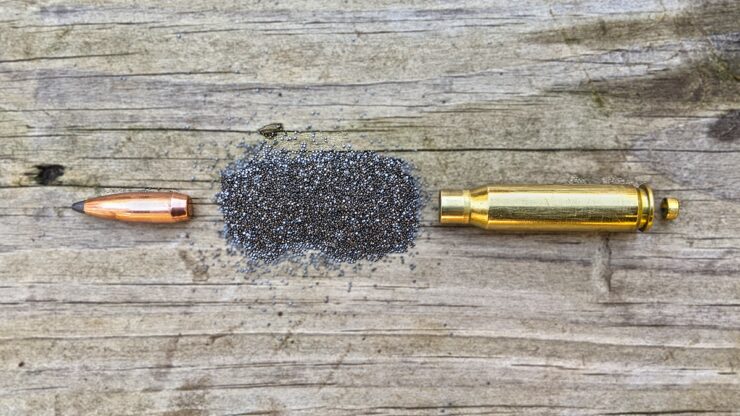
There are several important factors to consider when choosing hunting ammunition:
Game type: The type of game being hunted will dictate the size and caliber of ammunition needed. The small game requires smaller caliber ammo, while the larger game requires larger caliber ammunition.
Hunting regulations: It is important to check local hunting regulations to ensure that the ammo being used is legal for hunting in the area.
Cartridge style: The sort of cartridge employed will affect the piercing, extension, and ultimate efficiency of the projectile. Although some rounds are made to burst quickly upon contact, others are made to penetrate deeply.
Accuracy: The accuracy of the ammo is critical to ensure a clean and humane kill. It is important to choose ammunition that is accurate and reliable in the specific firearm being used.
Distance: The distance of the shot will affect the trajectory and energy of the ammunition. It is important to choose ammunition that is appropriate for the distance of the shot.
Recoil: The recoil of the ammunition can affect the accuracy and shooter comfort. It is important to choose ammo that the shooter can comfortably handle.
Cost: Hunting ammo can vary greatly in cost, with some rounds being significantly more expensive than others. It is important to choose ammo that is within the budget of the shooter.
Legal Tips
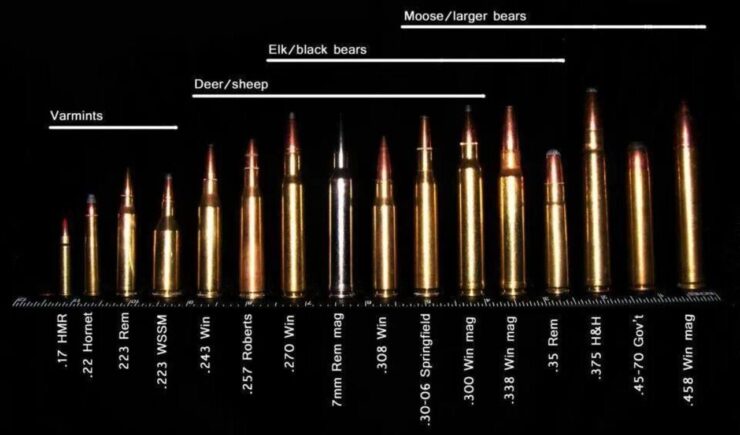
Here are some general tips regarding hunting ammunition:
Always check local and state laws regarding hunting ammunition before purchasing or using it. Different states and municipalities have different laws and regulations regarding what type of ammunition is legal for hunting.
Employ ammo suitable for the animal you are trying to capture. Using the incorrect cartridge can be risky and illegal because various sorts of bullets are suited for various sorts of sports.
Practice safe handling and storage of ammunition. Always keep ammunition away from heat, moisture, and direct sunlight. Make sure to handle ammo carefully, and never use damaged or corroded ammo.
Be aware of the impact of ammunition on the environment. Certain types of ammunition can have harmful effects on the environment, so it’s important to use ammo that minimizes these impacts as much as possible.
When transporting ammunition, make sure it is properly secured and labeled. Follow all local and state laws regarding the transportation of ammunition, and ensure that it is stored safely and securely during transit.
Guidelines
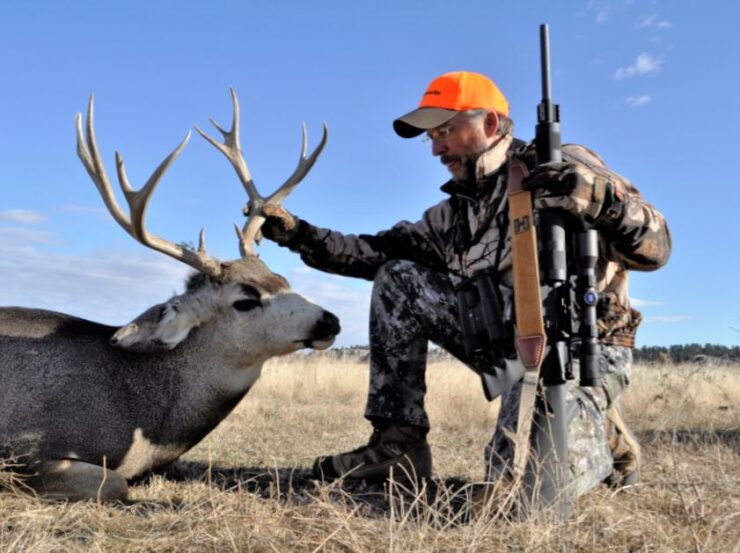
Tailored ammo known as “shooting ammo” is made to be utilized just for scavenging sport species. Here are some pointers for properly and securely utilizing shooting ammo:
Choose the right caliber: The caliber of the ammunition you choose should be appropriate for the size and type of game you are hunting. Using a caliber that is too small can result in a wounded animal that may suffer unnecessarily. Using a caliber that is too large can damage the meat and make it inedible.
Use quality ammunition: Choose ammunition from a reputable manufacturer and make sure it is designed specifically for hunting. Avoid using surplus or military ammo, as it may not perform as expected and could be dangerous.
Practice with your chosen ammunition: Before going on a hunting trip, practice shooting with your chosen ammunition at a range. This will help you become familiar with how the ammo performs and give you a chance to adjust your aim if needed.
Adhere to recommended management and preservation practices: Keep your ammo out of the warmth and dampness in a chilly, drier location. When handling ammo, always treat it with respect and follow proper safety procedures, including wearing eye and ear protection and keeping the muzzle pointed in a safe direction.
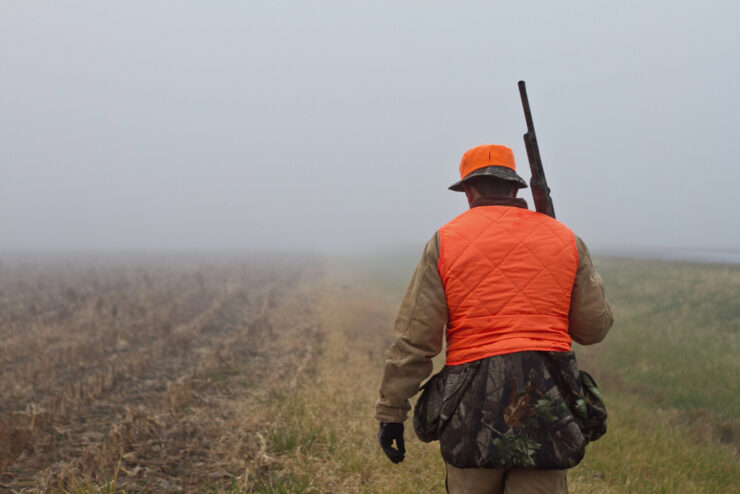
Respect regional rules and ordinances: Be assured you are knowledgeable about local shooting statutes and guidelines, especially any limitations on the employment of particular ammunition. Always hunt ethically and responsibly, and take only clean and humane shots.
Use appropriate bullet construction: Different bullet constructions are designed for different hunting situations, and using the wrong one can lead to poor performance and even dangerous ricochets. For example, hollow point bullets are designed for quick expansion and are good for small games, while bonded bullets are better suited for larger games and may penetrate deeper.
Consider the environment: Be aware of your surroundings and choose ammunition that is appropriate for the terrain and vegetation. For example, if you are hunting in an area with a thick brush, you may want to use ammo that is designed to penetrate through obstacles.
In Conclusion
Using hunting ammo requires careful consideration of several factors to ensure both safety and effectiveness. Hunters should choose the appropriate caliber and bullet construction for the game they are hunting, practice with their chosen ammunition, store and handle it properly, and follow local laws and regulations. By observing these guidelines and using hunting ammo responsibly, hunters can ensure a safe and ethical hunting experience.

